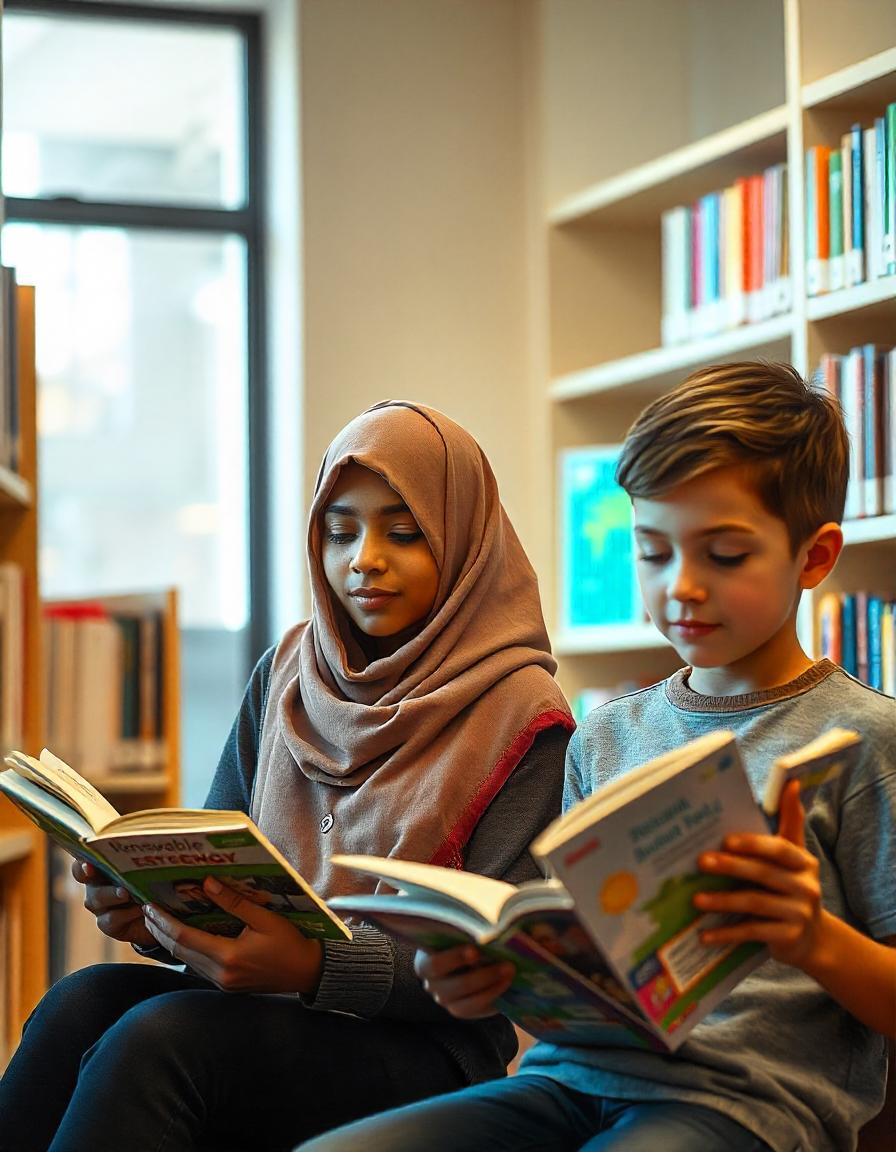Extracurricular activities play a pivotal role in the educational landscape, providing students with opportunities to develop skills and interests that extend beyond the classroom. In Europe, cultural events and exchanges are particularly significant, offering a rich tapestry of experiences that foster personal growth, cultural awareness, and social connections. These activities not only enhance the educational experience but also contribute to the broader goal of building a cohesive European identity. This article aims to explore the various types of extracurricular activities in Europe, particularly focusing on cultural events and exchanges, their historical context, and their impact on individuals and communities.
Historical Context
The roots of extracurricular activities in Europe can be traced back to ancient times, where cultural exchanges were essential for the dissemination of knowledge and ideas. As Europe evolved, particularly after the Renaissance, the importance of arts and culture in education became increasingly recognized. The 20th century marked a significant turning point, especially in the aftermath of World War II. The devastation of the war underscored the need for unity and understanding among nations, leading to the establishment of various cultural exchange programs aimed at fostering peace and collaboration.
One of the most influential initiatives was the Erasmus program, launched in 1987, which aimed to promote student mobility across Europe. This program not only facilitated academic exchanges but also encouraged cultural immersion, allowing students to experience different ways of life and perspectives. Over the years, Erasmus has expanded to include a wide range of activities, including internships, volunteer opportunities, and youth exchanges, making it a cornerstone of European educational policy.
Cultural events have also played a crucial role in shaping the landscape of extracurricular activities. Festivals, art exhibitions, and performances have become platforms for cultural expression and exchange, bringing together people from diverse backgrounds. These events celebrate the rich cultural heritage of Europe while promoting dialogue and understanding among different communities. The historical context of these activities highlights their evolution from mere educational supplements to essential components of the European identity.
Types of Extracurricular Activities
Extracurricular activities in Europe encompass a wide array of cultural events and educational exchanges that cater to diverse interests and backgrounds. These activities can be broadly categorized into two main types: cultural events and educational exchanges.
Cultural Events
Cultural events are vibrant celebrations of art, music, theater, and various forms of creative expression. They provide opportunities for individuals to engage with different cultures, fostering a sense of community and shared experience. Some notable types of cultural events include:
- Festivals: Europe is renowned for its numerous festivals that celebrate everything from music and art to food and tradition. Events like the Venice Carnival, Oktoberfest in Munich, and the Edinburgh Festival Fringe attract millions of visitors each year. These festivals not only showcase local culture but also encourage participation from international artists, creating a melting pot of ideas and creativity.
- Theater and Performance Arts: Theatrical productions and performance arts are integral to European culture. Many universities and cultural institutions host theater groups that perform both classic and contemporary plays, often incorporating elements from various cultures. Events like the Cannes Film Festival highlight the importance of cinema as a cultural exchange medium, showcasing films from around the world and facilitating discussions on global issues.
- Art Exhibitions and Fairs: Art plays a significant role in cultural exchange, with exhibitions and fairs providing platforms for artists to showcase their work. Events like the Venice Biennale and Art Basel attract artists, collectors, and art enthusiasts from across the globe. These gatherings foster dialogue about contemporary issues, artistic trends, and cultural narratives, allowing participants to engage with diverse perspectives.
Educational Exchanges
Educational exchanges are structured programs that allow students to study, work, or volunteer in different countries, promoting cultural immersion and personal development. Key components of educational exchanges include:
- Student Exchange Programs: Programs such as Erasmus+ enable students to study abroad for a semester or year, immersing themselves in a new culture while continuing their academic pursuits. Participants often report significant personal growth, enhanced language skills, and a deeper understanding of global issues as a result of their experiences.
- Workshops and Seminars: Many educational institutions organize workshops and seminars that bring together students from various backgrounds to collaborate on projects or learn new skills. These events often focus on specific themes, such as sustainability, technology, or the arts, encouraging participants to share their experiences and knowledge.
- Collaborative Projects: Joint projects between universities, schools, and community organizations facilitate cross-cultural learning. These initiatives may involve research, artistic collaborations, or community service, allowing students to work together on meaningful projects while gaining insights into each other’s cultures.
In conclusion, extracurricular activities in Europe, particularly cultural events and educational exchanges, play a vital role in enriching the educational experience. They foster personal development, cultural awareness, and social connections, ultimately contributing to a more cohesive and understanding European community. As we move forward, it is essential to continue supporting and expanding these activities to ensure that future generations benefit from the diverse and enriching experiences they …offer. By investing in these initiatives, we can empower students to become global citizens who appreciate diversity and possess the skills necessary to navigate an increasingly interconnected world.
Moreover, fostering a culture of participation in extracurricular activities can lead to stronger communities, where individuals are more engaged, empathetic, and collaborative. As students share their unique perspectives and learn from one another, they help cultivate a spirit of inclusivity and mutual respect that is essential for addressing the challenges faced by modern society.
In addition, the continued evolution of these activities, especially through the integration of technology and innovative approaches, will ensure that they remain relevant and accessible to all. By embracing new methods of engagement, we can reach a broader audience and inspire more young people to take part in cultural exchanges and events.
Ultimately, the commitment to enriching the educational landscape through extracurricular activities will not only benefit individuals but also strengthen the social fabric of Europe. As we nurture the talents and passions of our youth, we pave the way for a future characterized by creativity, understanding, and collaboration across borders. It is through these shared experiences that we can truly build a united and vibrant European community for generations to come.
Impact of Extracurricular Activities
The impact of extracurricular activities, particularly cultural events and educational exchanges, extends far beyond the immediate benefits of skill development and academic enhancement. These activities play a crucial role in shaping individuals and communities, fostering personal growth, cultural appreciation, and social cohesion.
Personal Development
Participation in extracurricular activities allows individuals to develop a range of skills that are essential for personal and professional success. These include:
- Skill-Building and Creativity: Engaging in cultural events encourages creativity and self-expression. Whether through performing arts, visual arts, or music, participants have the opportunity to explore their creative potential. Workshops and collaborative projects further enhance skills such as teamwork, problem-solving, and adaptability, which are highly valued in today’s job market.
- Social Skills and Networking: Extracurricular activities provide a platform for individuals to meet and interact with peers from different backgrounds. This interaction fosters social skills, including communication, empathy, and collaboration. Networking opportunities arise as participants connect with like-minded individuals, industry professionals, and cultural leaders, potentially leading to future collaborations or career opportunities.
- Confidence and Leadership: Taking part in cultural events or leading projects can significantly boost an individual’s confidence. Students who engage in public speaking, performances, or organizing events often find themselves stepping into leadership roles, which enhances their ability to take initiative and inspire others.
Cultural Awareness and Appreciation
Cultural events and exchanges are instrumental in promoting cultural awareness and appreciation among participants. These activities expose individuals to diverse traditions, languages, and perspectives, fostering a sense of global citizenship. Key aspects include:
- Understanding Diversity: Through participation in festivals, workshops, and exchanges, individuals gain firsthand experience of different cultures. This exposure helps to break down stereotypes and misconceptions, promoting tolerance and respect for diversity.
- Building a Shared European Identity: Cultural exchanges contribute to the development of a shared European identity by highlighting common values and experiences. As students engage with peers from different countries, they recognize the interconnectedness of their histories and cultures, fostering a sense of belonging within the broader European community.
- Encouraging Lifelong Learning: The appreciation for different cultures often ignites a passion for lifelong learning. Individuals who participate in cultural events may be inspired to learn new languages, explore different art forms, or study global issues, enriching their personal and academic lives.
Academic Benefits
Research indicates that students involved in extracurricular activities tend to perform better academically. The skills and experiences gained through cultural events and exchanges contribute to this positive correlation in several ways:
- Enhanced Engagement: Students who participate in extracurricular activities are often more engaged in their education. The motivation and enthusiasm cultivated through these experiences can lead to improved focus and performance in academic settings.
- Improved Time Management: Balancing academic responsibilities with extracurricular commitments requires effective time management skills. Students learn to prioritize tasks and manage their schedules, which can translate into better academic performance.
- Increased Resilience: Facing challenges in extracurricular activities, whether in performances, competitions, or collaborative projects, helps students develop resilience. This ability to overcome obstacles and adapt to changing circumstances is invaluable in both academic and personal contexts.
Case Studies
To illustrate the impact of cultural events and educational exchanges, several case studies highlight successful programs and their outcomes:
- Erasmus+ Program
The Erasmus+ program has been a transformative initiative for millions of students across Europe. By facilitating study abroad opportunities, it has enabled students to immerse themselves in different cultures while pursuing their academic goals. For instance, a student from Spain participating in an exchange program in Germany reported significant improvements in her language skills and cultural understanding, which later benefited her career in international relations.
- Edinburgh Festival Fringe
The Edinburgh Festival Fringe is one of the largest arts festivals in the world, attracting performers and audiences from diverse backgrounds. Many young artists and students participate, gaining invaluable experience in the performing arts. A group of theater students from Italy showcased their play at the festival, receiving critical acclaim and establishing connections with international directors and producers, which opened doors for future opportunities.
Youth Exchange Programs
Various youth exchange programs, such as those organized by the European Youth for Action, allow young people to engage in community service projects across Europe. Participants often report profound personal growth and a deeper understanding of social issues. A participant from Poland shared how working on a community garden project in the UK not only enhanced his teamwork and leadership skills but also inspired him to initiate similar projects in his hometown.
Challenges and Opportunities
Despite the numerous benefits of extracurricular activities, several challenges can hinder participation and effectiveness:
- Barriers to Participation
- Financial Constraints: Many students face financial barriers that limit their ability to participate in cultural events or educational exchanges. Travel costs, accommodation, and participation fees can be prohibitive, particularly for those from lower-income backgrounds.
- Lack of Awareness: Some students may not be aware of the available opportunities for cultural exchange or extracurricular activities. This lack of information can prevent them from taking advantage of valuable experiences that could enhance their education and personal growth.
- Logistical Challenges: Coordinating schedules, navigating application processes, and managing commitments can be daunting for students. Those juggling academic responsibilities, part-time jobs, or family obligations may find it difficult to participate in extracurricular activities.
Innovative Solutions
To address these challenges, various organizations and institutions are implementing innovative solutions:
- Scholarships and Grants: Many universities and cultural organizations offer scholarships and grants specifically designed to support students in participating in cultural events and exchanges. These financial aids can significantly reduce the burden of costs, making opportunities more accessible.
- Awareness Campaigns: Educational institutions are increasingly recognizing the importance of promoting extracurricular activities. By implementing awareness campaigns, they can inform students about available programs and the benefits of participation. This can include workshops, information sessions, and social media outreach.
- Flexible Programs: To accommodate students with varying schedules and commitments, some organizations are developing flexible programs that allow for part-time participation or online components. This adaptability ensures that more students can engage with cultural events and exchanges without sacrificing their other responsibilities.
- Future Trends
Looking ahead, the landscape of extracurricular activities in Europe is likely to evolve in response to global changes and technological advancements:
- Digital Engagement: The rise of digital platforms has opened new avenues for cultural exchange and learning. Virtual events, online workshops, and digital collaborations are becoming increasingly popular, allowing participants to engage with diverse cultures from the comfort of their homes. This trend can significantly broaden access to extracurricular activities, especially for those unable to travel.
- Focus on Sustainability: As awareness of environmental issues grows, many cultural events and exchanges are incorporating sustainability practices. Initiatives that promote eco-friendly practices in organizing events or encourage participants to engage in community service projects focused on sustainability are likely to gain traction.
- Integration of Technology: The integration of technology in educational exchanges will continue to expand. Virtual reality experiences, online language exchanges, and collaborative digital projects can enhance cultural immersion and facilitate connections among participants from different countries.
Conclusion
Extracurricular activities, particularly cultural events and educational exchanges, are essential components of the educational experience in Europe. They provide invaluable opportunities for personal development, cultural awareness, and academic enhancement. Despite the challenges that may hinder participation, innovative solutions and future trends indicate a promising landscape for these activities.
As we move forward, it is crucial for educational institutions, cultural organizations, and policymakers to continue supporting and expanding extracurricular opportunities. By doing so, they will not only enrich the lives of individuals but also contribute to a more interconnected and understanding European community. The benefits of cultural events and exchanges extend far beyond the individual; they play a vital role in fostering a sense of shared identity and collaboration among diverse populations, ultimately shaping a brighter future for Europe.



